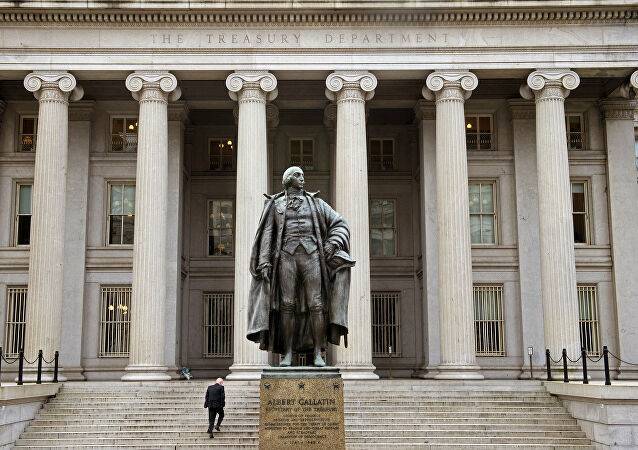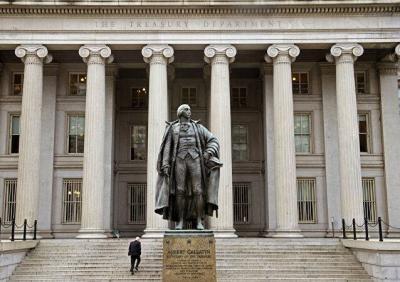The newspaper "Asharq Al-Awsat" reported that a delegation from the U.S. Treasury Department, which visited Beirut in recent days, warned that "Al-Qard Al-Hassan," which provides cover for Hezbollah's financial activities, "threatens the credibility of the Lebanese financial system." The delegation urged the government and banking officials to ensure an increase in returns for depositors in any financial recovery plan.
The high-level delegation from the U.S. Treasury concluded a three-day visit to Lebanon yesterday, during which it met with President Michel Aoun, Parliament Speaker Nabih Berri, Foreign Minister Abdullah Bou Habib, members of the Lebanese government, civil society, and the banking sector. The delegation confirmed the U.S. government's commitment to stand by the Lebanese people in their economic crisis.
The U.S. Treasury delegation included Paul Ahern, the Deputy Assistant Secretary for Combating Terrorism Financing and Financial Crimes, and Deputy Assistant Secretary Eric Meyer, who met with Lebanese officials in the presence of U.S. Ambassador to Lebanon Dorothy Shea and the accompanying delegation.
The delegation highlighted Al-Qard Al-Hassan, the financial arm of Hezbollah, which the U.S. has labeled as a "false and unregulated financial institution" violating a license from the Ministry of Interior and providing cover for Hezbollah's financial activities, thus endangering the credibility of the Lebanese financial system. Concerns about violations within the banking system by members of the political and economic elite were also raised. The delegation emphasized the need for serious efforts to investigate these violations, particularly by the Central Bank of Lebanon and the Financial Investigation Unit, which was established to investigate illicit financial activity. It also called on the relevant authorities to conduct investigations and the necessary technical examinations regarding any related transfers.
In its statement yesterday, the U.S. Treasury said the delegation encouraged the Lebanese government to develop a program supported by the International Monetary Fund, indicating that this program "could help restore much-needed trust in the economic system." The delegation addressed the issue of corruption in Lebanon, identifying critical areas to tackle the lack of transparency and accountability in its meetings with both the public and private sectors, asserting that addressing corruption in Lebanon is a prerequisite for tackling governance and the economic crisis.
The delegation urged government officials and banks to ensure maximized returns for Lebanese depositors, especially small depositors, in any financial recovery plan, stressing the need for swift action to improve the financial system.
The U.S. Treasury stated in its announcement that the delegation "emphasized the necessity for the Lebanese government to implement deep and meaningful reforms before the elections."
The delegation concluded its visit to Beirut yesterday with a meeting with Foreign Minister Abdullah Bou Habib, who was briefed by delegation members on their meetings with the banking and financial sectors.
The Lebanese presidency stated the day before yesterday that the delegation presented President Aoun with the objectives of its visit to Beirut, focusing on cooperation with the Lebanese government in monitoring the banking situation in the country, especially regarding issues related to money laundering, anti-corruption efforts, ongoing negotiations with the International Monetary Fund, and the state of the Lebanese banking sector.




